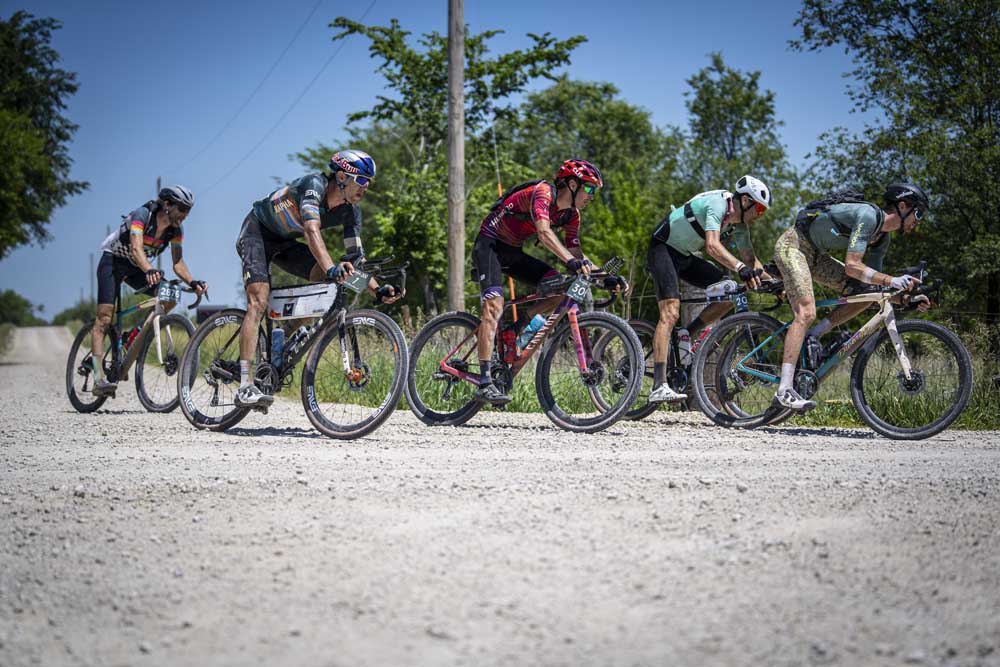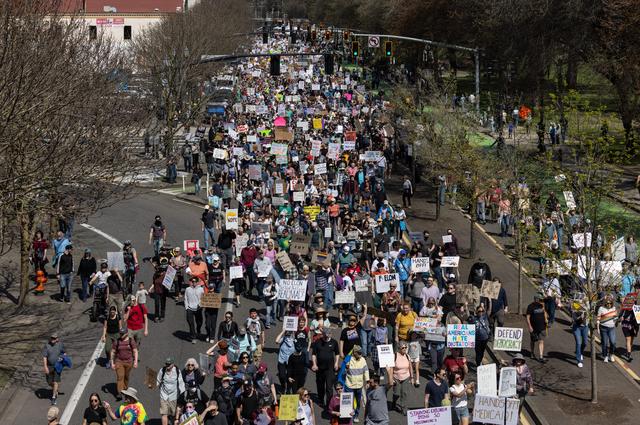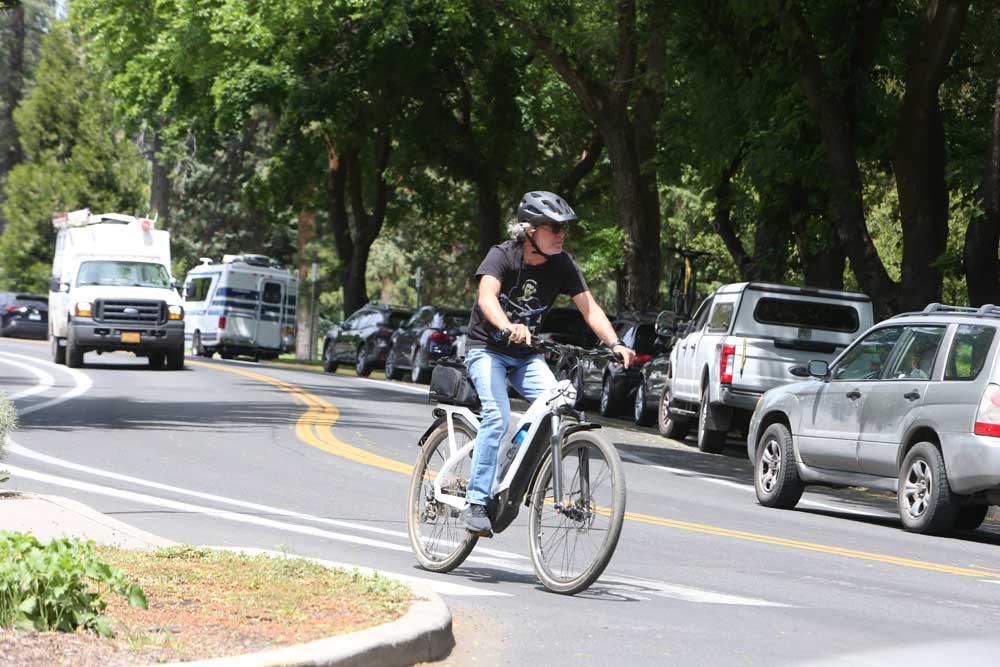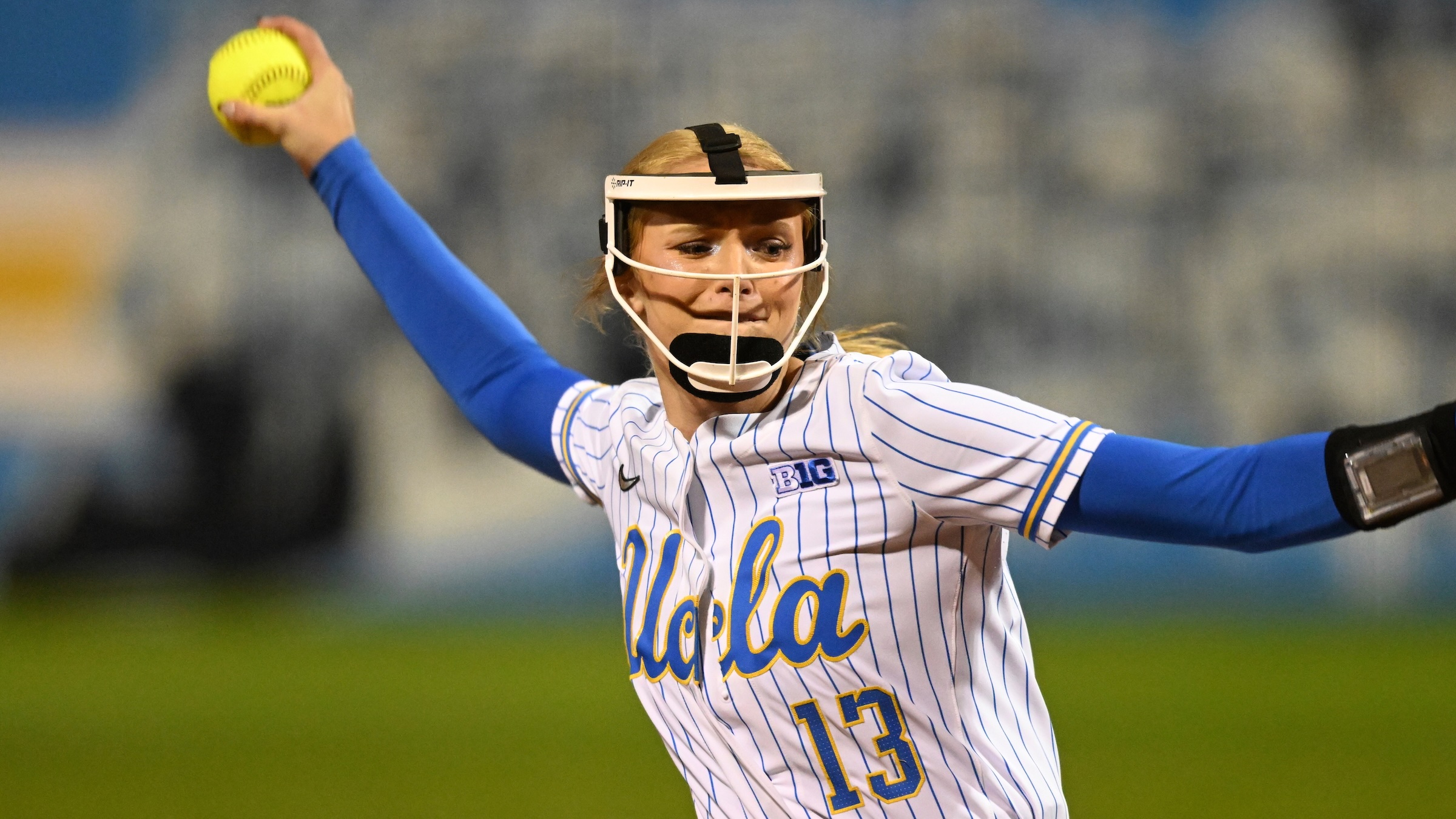Bend’s Boswell reflects on victory in prestigious gravel cycling race
Published 9:00 pm Saturday, June 12, 2021

- Former Bend resident Ian Boswell, far right, leads a group of riders in the Unbound Gravel 200 in Kansas on June 5.
Ian Boswell gained a new perspective on life and cycling after retiring from WorldTour road racing at the end of 2019.
“Finding balance in your life is incredibly important,” said Boswell, born and raised in Bend. “Stressing about what you haven’t done isn’t as beneficial as being happy with what you are able to do, and I think that’s something a lot of athletes can realize, is that you don’t need to do the training that everybody else is doing, just focus on what you can do and what you have time for.”
Boswell, 30, can still race and beat the best.
He proved that on June 5 with his inspiring victory in the Unbound Gravel 200 in Kansas, the most prestigious gravel cycling race in the country.
Boswell sprinted past Dutch former road racer Laurens ten Dam just before the finish line in Emporia to take the victory in 10 hours, 17 minutes, 24 seconds, after racing 206 miles on a hot, windy day in the Flint Hills.
“It was a bit of a surprise, to be honest,” Boswell said via phone from his home in Peacham, Vermont, three days after his win. “It’s kind of a new arena that I’m participating in. Once I had stopped my road career at the end of 2019, I was planning on doing more (gravel) events, but the pandemic kind of put all that on hold. I’m still very new to it. This is my second-ever big gravel event, so still very much learning and observing. I know a lot of the contenders and the riders up front.”
Boswell and ten Dam were the two fastest riders to break free from the 1,000-rider field.
They pulled ahead of other top racers and former pro road cyclists Peter Stetina, Ted King, and defending-champion Colin Strickland in the final 30 miles.
Then Boswell pulled away from ten Dam in the final straightaway to the finish line.
“I went into it with the desire to do well, but more to have just a good run at it, rather than going there to try to win the thing,” Boswell said. “Obviously winning it is awesome, but it wasn’t really an expectation that I had of myself.”
Boswell said he did not think he was going to win until he actually crossed the finish line.
“Just because there’s just so many unknown factors in gravel racing, with mechanicals, and (body) fueling, and flat tires and all that,” he said. “There’s a lot of unknowns, and it’s all kind of new to me with a different format of bike racing. But I was fortunate to have a clean run at it, no mechanicals, and was able to eat and drink enough. I really just had a perfect day out there mechanically and physically. Everything had to just align to put myself in the position to sprint for the win against ten Dam.”
After an 11-year road career, Boswell announced in late 2019 that he was retiring from the WorldTour to pursue gravel racing and to be a full-time rider liaison for Atlanta-based technology brand Wahoo Fitness, which makes indoor trainers and bike computers and sponsors five WorldTour teams.
Boswell was born in Bend with a marathon-running mother and a triathlete father who encouraged his love of cycling. A graduate of Bend’s Summit High School, Boswell, at 21, moved to Nice, France, to join world-renowned Team Sky.
He raced seven years on the WorldTour, including five with Team Sky. In 2017 he finished fifth overall in the Tour of California. He competed four times in Grand Tour events, racing the Vuelta a Espana in 2015 and 2016 and the Giro d’Italia in 2016. In his first and only Tour de France, in 2018, he placed 79th overall in a field of 145 finishers.
Boswell suffered a concussion — the sixth of his career — in a violent crash at the Tirreno-Adriatico in Italy in March 2019 while racing with Team Katusha-Alpecin, and he underwent a long recovery process, sitting out the rest of the season while dealing with vision problems and constant headaches.
Part of the reason Boswell has turned to gravel racing is because he believes it to be safer than road racing. He did not want to face the prospect of another crash, another concussion. Sure, gravel racing is dangerous as well, but in his new career his income does not hinge on his results.
Gravel riding and racing are surging in popularity in the United States. Unbound, the most high-profile race and formerly called the Dirty Kanza, is staged every spring near Emporia, Kansas, and was started in 2006 with 34 racers. This year, it hosted nearly 3,000 riders, including top cyclists from throughout the country.
Courses in gravel races vary from hard-packed dirt to softball-sized rocks, and distances usually range from 50 to 150 miles but can be even longer.
Boswell said he has lots of dirt and gravel roads to ride near his house in Peacham, where he lives with his wife, Kaija.
He has a much different approach to gravel racing, because racing is not his career anymore.
“I’m working a full-time job with Wahoo, so my time to ride and train, and my approach to these types of events is very different than what I did when I was racing on the WorldTour and had the opportunity to train all day and focus exclusively on my performance and my body,” Boswell said. “There’s a lot more happening in my life now. So I still make time to ride, just not as much as I used to.
“I do have a level of base, residual fitness from my time on the WorldTour, which is incredibly helpful. I also don’t have the pressure and expectations of having to win because it’s my job and career.”
As an athlete liaison for Wahoo, Boswell hosts a popular bi-monthly podcast called Breakfast with Boz and he often gets pulled into other projects, such as videos for new product launches.
“I use my prior experience as a professional athlete to make things easier and relatable to athletes,” Boswell said.
Boswell said he plans to race about five or six gravel events per year. His next race will be the Migration Gravel Race, a four-day stage race in Kenya, June 23-26. The race conflicts with the Oregon Trail Gravel Grinder, set for June 23-27 on dirt and gravel roads throughout Central Oregon, so Boswell will not be returning to Bend to race on his old home roads. But he said he could not pass up a chance to race in Africa.
“The level and depth of the field in gravel races is rising,” Boswell said. “There’s so many people out there. There’s people who are racing to win, and there’s other people out there riding for the experience, having as many tough moments and struggles as the people at the front. Their stories are just as compelling, which is the cool thing about these events. You’re on the start line with so many people of so many different abilities but everyone is riding the same course at the same time.”






